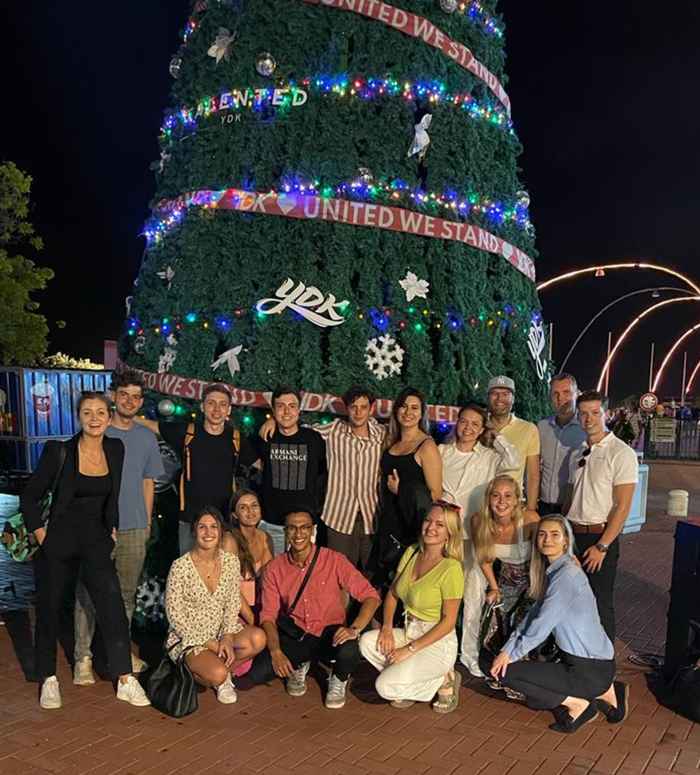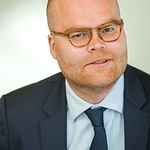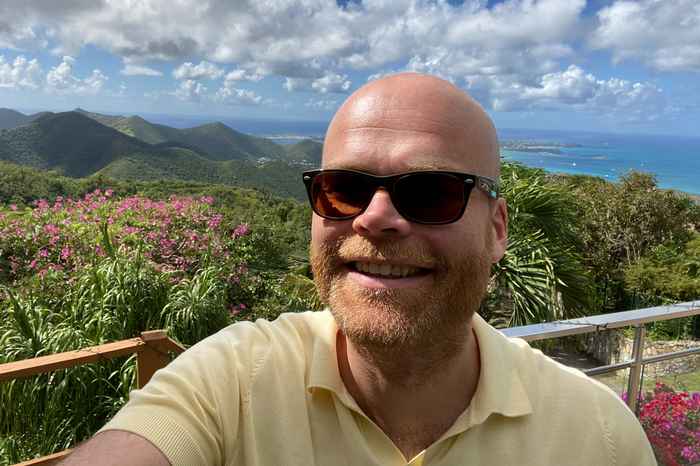UvA EB students create social impact with Community Service Learning
23 November 2022

This year almost twice as many students will spend a fortnight in Curaçao to get answers to their questions. These are clear indicators of success according to Pepijn van Neerijnen, the coordinator of the project.
The 2021 project in Curaçao is the first international Community Service Learning project rolled out at UvA. So what’s the idea behind it? ‘You can see it as the creation of social impact using the knowledge we have’, Van Neerijnen explains. He is an assistant professor at UvA Economics and Business (EB) and he will join the students during their 2-week stay in Curaçao.
Van Neerijnen continues: ‘We can of course use UvA in various ways to generate impact, via media appearances or membership of advisory boards just to name a few examples. But we can also do so with the help of our students. And if you ask me, that’s the very best way of creating impact: that’s where you’ll find the most win-win situations.’ Clients get answers to pressing questions while students get the opportunity to put what they have learned into practice.

I heard that the governor of the central bank of Curaçao was extremely impressed by their work.Pepijn van Neerijnen
Last year’s research topics more general
During the first trip, students focused on more broad-ranging, general themes that also matter to Curaçao. 'Examples include the electrification of vehicle fleets, growth in the share of renewable energy and strategies for how companies can emerge from the covid crisis.'
The UvA EB students offered their clients very professional advice. 'I heard that the governor of the central bank of Curaçao was extremely impressed by their work. That’s great to hear and it also empowers our students.'
Brain drain, income inequality and the black market
The success of the project is clear from the growing number of students travelling to Curaçao this year and from the continued participation of clients from last year. And this time they have raised issues that deal even more specifically with Curaçao.
‘This year, we’re going with 7 groups of 4 students each, almost twice as many as in 2021. One of the themes they’ll examine is the distribution of income inequality on the island. People generally think that income inequality is greater on an island but there’s a lack of statistical information.’

The brain drain is another subject students will tackle. ‘The brightest minds take off for universities in the Netherlands or the United States and then end up staying abroad. They find a job and have a family. So the most talented people keep leaving the island. How can we make it more attractive for them to come back?’
Apart from these issues, students will try to get a grip on the size of the local informal economy and the extent of unregistered employment (so-called ‘moonlighting’).
Unforgettable experience for students
The Curaçao Community Service Learning Project is not only highly beneficial to clients, in terms of useful advice, but also seems to be extremely valuable to students themselves. Van Neerijnen observes: ‘In my opinion, that’s the best outcome of all. As the project progresses, students really get to know themselves. They discover that, even within our kingdom, there’s a great deal of inequality. And they learn that they can use their studies to actually do something about it.’
Although the students and their professors will really have to roll up their sleeves when they get to Curaçao, there will also be plenty of opportunity to relax and discover the island. Van Neerijnen thinks they will strike a good balance. ‘There will be a bit of weekend work but I’m certain that but I’m certain this will be an unforgettable experience for these students.’
Big ambitions
UvA EB has ambitious designs when it comes to CSL. 'Right now, we’re very busy developing plans to roll out this international module to include other countries. These will include Indonesia, St. Martin, Aruba and Bonaire, although the latter is not a country but a special-status municipality.'
What students will be doing in these other countries could well vary depending on the location. In Curacao, they are looking at socio-economic issues but meetings with the Bandung Institute of Technology in Java are more about social entrepreneurship. Van Neerijnen adds: 'They will sit down with the local population to see how sole traders and cooperatives there can be professionalised further. 'It is clear that the Curacao Community Service Learning Project is just a first step.'